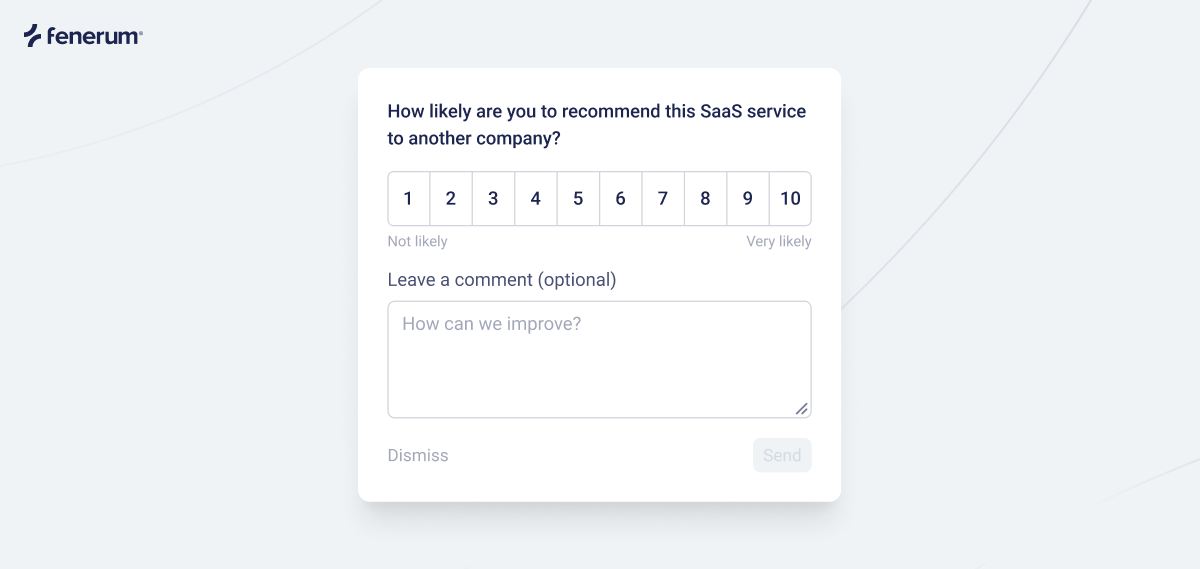What is NPS?
NPS, short for Net Promoter Score, is a widely used metric that measures customer loyalty and satisfaction by asking customers how likely they are to recommend your company, product, or service to others. NPS is a simple yet powerful tool for gauging overall customer sentiment and identifying opportunities for improvement.
 How Net Promoter Score (NPS) can be shown in product.
How Net Promoter Score (NPS) can be shown in product.
How is NPS calculated?
The Net Promoter Score is calculated based on responses to a single question: "On a scale of 0 to 10, how likely are you to recommend our company/product/service to a friend or colleague?" Based on their rating, customers are classified into three groups:
- Promoters (score 9-10): Loyal enthusiasts who will keep buying and refer others, fueling growth.
- Passives (score 7-8): Satisfied but unenthusiastic customers who are vulnerable to competitive offerings.
- Detractors (score 0-6): Unhappy customers who can damage your brand and impede growth through negative word-of-mouth.
The NPS calculation is straightforward:
NPS = % of Promoters - % of DetractorsFor example, if 60% of respondents are Promoters, 20% are Passives, and 20% are Detractors, the NPS would be:
NPS = 60% - 20% = 40NPS can range from -100 (if every customer is a Detractor) to +100 (if every customer is a Promoter).
Why is NPS important for SaaS?
For SaaS businesses, NPS is a critical indicator of customer satisfaction, loyalty, and the likelihood of referrals. A high NPS suggests that customers are happy with your product and are likely to recommend it, which can drive organic growth and reduce churn. Tracking NPS over time helps SaaS companies identify trends, address issues, and improve the customer experience.
Key points about NPS in SaaS:
- Simple and actionable: Easy to implement and interpret.
- Benchmarking: Allows comparison with industry standards.
- Customer feedback: Provides direct insights into customer sentiment and areas for improvement.
NPS Benchmarks
NPS benchmarks vary by industry, but here are some general guidelines:
- NPS below 0: Indicates more Detractors than Promoters. Immediate action is needed to improve customer satisfaction.
- NPS of 0–30: Average. There is room for improvement in customer loyalty.
- NPS of 30–70: Good to excellent. Indicates strong customer loyalty and satisfaction.
- NPS above 70: World-class. Very few companies achieve this level of customer advocacy.
Note: NPS benchmarks can differ by industry and customer segment. Always compare your NPS to similar companies for meaningful insights.
Conclusion
Understanding and tracking your Net Promoter Score is essential for SaaS business growth. NPS reflects customer loyalty and the likelihood of referrals, making it a valuable metric for improving products, services, and customer relationships. By regularly surveying customers and acting on their feedback, companies can increase their NPS and drive long-term success.
